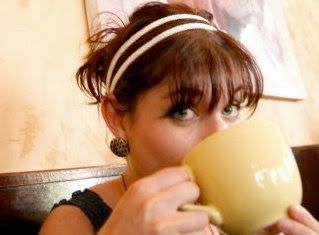
Christians are no strangers to persecution. While persecution has not always been as intense or frequent it has generally always existed except for brief periods of peace.
Give a listen to Dr. David Calhoun's 3rd lecture from Ancient and Medieval Church History, which he teaches as Covenant Theological Seminary. Here is a recap of this lecture plust some other thoughts on Christian suffering.
From the time of the 1st century til around year 320 A.D. Christians experienced persecution at the hands of the Jews and Roman citizens.
The methods of persecution were many. To name a few, Christians were beaten with whips, boiled, burned at the stake, crucified, ripped apart, cooked on large frying pans and fed to the lions.
Here is my ever-so-rough summary of one account that I read in Foxe's Book of Martyrs some time ago.
Around the year 305 A.D., Pitiless & Asclepiades invaded the city of Antioch. Their mission was to cause Christians to apostasize. When a Christian named Romanus heard that they were coming, he ran to the Christians who were gathered in worship and told them that these wolves were coming. His instructions to them were, “Fear not!” And by Romanus’ influence, young and old, men and woman, fathers and mothers, were all united and ready to shed their blood to defend their Christian beliefs. When Pitiless and Asclepiades heard of Romanus, they ordered his capture. He was brought to trial that he might speak on behalf of all the Christians. During the inquisition, Asclepiades threatened Romanus with torture but Romanus gladly accepted whatever would be invented to cause suffering. Asclepiades anger burned hot against Romanus and he commanded that Romanus be stretched out to have his guts torn out. The executioners had pity on Romanus simply because he was a son of a nobleman. So instead of gutting him, they beat him with a whip with lead tips as Asclepiades then ordered. While Romanus was being beaten tears flowed from his eyes, groans came from his mouth. But during the times he was able to get his breath he sang songs to the Lord. And during his beating he pleaded them to them that they might treat him as a Christian, not as a son of a nobleman. These words cause Asclepiades to get even more angry. So he ordered that knives be taken to slice up the sides of Romanus until his ribs showed. Romanus responded by preaching the living God. He preached that people can only have eternal life through the blood of Jesus Christ. Upon speaking, Asclepiades ordered that Romanus be punched in the mouth so as to knock out his teeth. His eyelids were torn with their fingernails and his cheeks were cut with their knives. They plucked his beard from his face so that holes began to appear in his cheeks. Romanus responded by saying, “Thank you for giving me many mouths by which I can now preach Jesus Christ. The holes in my cheeks are simply mouths that I can use to praise God.” Asclepiades said, “Your crucified Christ is but a god of yesterday. Our gods are the most ancient gods.” At this Romanus took the opportunity to declare the eternity of Christ, the fact that he became flesh and satisfied God’s anger in His death on the cross. Asclepiades said, “Bring me a child that is seven years old. They are at a young enough age so that they are innocent and not infected with such religious thinking as Romanus.” A little boy was called out of the crowd and asked, “Do you believe that we should worship Christ or many gods?” The child responded, “God is One. Christ in unique in that He is the true God. We children do not believe that there are many gods.” Asclepiades snapped back, “You young villain and traitor! Who did you learn this from?” The child responded, “I learned it from my mother!” The mother was called to the front. At this point the child was strung up and beaten with whips. Everyone around was crying at the terrible things that were taking place, but there the mother stood with dry cheeks. The child cried out for some cold water and the mother rebuked him for craving water and counseled her son to remember Isaac who willingly laid on an altar to be sacrificed to the Lord by his father Abraham. While she was talking to her child, the torturers began to pluck the skin from his head. The mother cried out, “Suffer my child and when you die, know that Christ will put a crown of glory on your naked head.” At this the child was encouraged and took his beating with a smile and happy face. The child was thrown in prison and eventually beheaded. Romanus’ tongue was cut out, he was thrown in prison and eventually strangled to death.
This is pretty intense. It's almost unthinkable that things like this ever happened or could ever happen again. But the truth is that contemporary Christians around the world are suffering similar fates. Perhaps not in America, but elsewhere persecution is a very real threat to very real Christians. Pray for them.
Now back to Dr. Calhoun's lecture. Calhoun lists several reasons that the early Christians were persecuted (either by Jews or Romans).
1. They were charged with being incestuous. How in the world could that be? Well, Christians were calling each other "brothers" and "sisters" and it was common to great each other with a holy kiss (Romans 16:16, 1 Corinthians 16:20, 2 Corinthians 13:12, 1 Thessalonians 5:26).
2. They were charged with cannibalism. The language that Jesus used and the church used in regards to communion was "cause" for this (John 6:53, 1 Corinthians 11:24-25).
3. They were charged with a lack of patriotism. Seeing themselves as citizens of God's Kingdom, they knew that they were not of this world (Ephesians 2:19) and so accused of being unpatriotric. While living on earth, they knew that they must cooperate and function on it as earthly inhabitants while living in a way that gave testimony to the fact that they were eternally citizens of heaven.
4. They were charged with causing all sorts of disasters. It seems that the people of that time where heavily superstituous towards the Christians. Listen to how Tertullian described the atmosphere and attitude of others towards early believers.
5. They were charged with atheism. I'm guessing that this was a charged leveled by the Romans. Obviously we know that God is not like the worldly idols that are created. He is Spirit and does not have a body. Of course, I am not speaking of the incarnation here. And because Christians worship an invisible God, it seemed to others that they were atheists.
6. They were charged with novelty. Novelty is described as the quality of being new. Some were under the impression that Christianity was a new religion. In fact, you hear echoes of that today: "Christianity has only been around since Jesus." In a sense that is true, but in reality, we Christians are "children" of Abraham. Christianity is really a continuation of all that God has decreed in eternity past. It is not something novel.
7. They were charged with hating the family. They were accused of hating their fathers, mothers and relatives. Was it true? No, but their love for the Lord and for each other was such that it seemed like they did not love their family (Luke 14:24-27). So great was their love for God and His family that they earned a reputation for despising their own relatives.
8. They were charged with setting fires to Rome. Nero accused them of doing this but only after it was suggested that he had set fire to his own empire in order to be able to rebuild it. Read through 1 Peter to see how the Christians were encouraged to live as they faced such horrible persecution for following and believing the gospel. And next time you click on your CD/DVD "burning" utility and you see that it's called NERO, remember the martyrs.
As I was mulling over the reason that early Christians were persecuted, I began to wonder what it was that we are known for in America. Are we known for taking communion? Are we known for loving our God and church such that it looks like we do not love our earthly families? Are we ever considered anti-American because we are so looking forward the coming reign of Jesus Christ?
It's something to think about in regards to myself as well as the people I shepherd. Am I teaching, encouraging and modeling Christ-likeness in such a way that they'll learn to live in like manner? Will Christian in America ever be known for their radical devotion to the church or will they be known for their radical devotion to the trivial like reality television? Will Christians in American ever be known for their love of the sacraments and worship or will they be known for their love of cars, food and sensual clothing?
When will this generation be known to the world as the 1st, 2nd and 3rd century generations of Christians were known in the times of Rome? If a seven-year-old boy could join Romanus and stand in the face of persecution, surely, with God's help, today's Christian can live and die for the One who lived and died for them.
Give a listen to Dr. David Calhoun's 3rd lecture from Ancient and Medieval Church History, which he teaches as Covenant Theological Seminary. Here is a recap of this lecture plust some other thoughts on Christian suffering.
From the time of the 1st century til around year 320 A.D. Christians experienced persecution at the hands of the Jews and Roman citizens.
The methods of persecution were many. To name a few, Christians were beaten with whips, boiled, burned at the stake, crucified, ripped apart, cooked on large frying pans and fed to the lions.
Here is my ever-so-rough summary of one account that I read in Foxe's Book of Martyrs some time ago.
Around the year 305 A.D., Pitiless & Asclepiades invaded the city of Antioch. Their mission was to cause Christians to apostasize. When a Christian named Romanus heard that they were coming, he ran to the Christians who were gathered in worship and told them that these wolves were coming. His instructions to them were, “Fear not!” And by Romanus’ influence, young and old, men and woman, fathers and mothers, were all united and ready to shed their blood to defend their Christian beliefs. When Pitiless and Asclepiades heard of Romanus, they ordered his capture. He was brought to trial that he might speak on behalf of all the Christians. During the inquisition, Asclepiades threatened Romanus with torture but Romanus gladly accepted whatever would be invented to cause suffering. Asclepiades anger burned hot against Romanus and he commanded that Romanus be stretched out to have his guts torn out. The executioners had pity on Romanus simply because he was a son of a nobleman. So instead of gutting him, they beat him with a whip with lead tips as Asclepiades then ordered. While Romanus was being beaten tears flowed from his eyes, groans came from his mouth. But during the times he was able to get his breath he sang songs to the Lord. And during his beating he pleaded them to them that they might treat him as a Christian, not as a son of a nobleman. These words cause Asclepiades to get even more angry. So he ordered that knives be taken to slice up the sides of Romanus until his ribs showed. Romanus responded by preaching the living God. He preached that people can only have eternal life through the blood of Jesus Christ. Upon speaking, Asclepiades ordered that Romanus be punched in the mouth so as to knock out his teeth. His eyelids were torn with their fingernails and his cheeks were cut with their knives. They plucked his beard from his face so that holes began to appear in his cheeks. Romanus responded by saying, “Thank you for giving me many mouths by which I can now preach Jesus Christ. The holes in my cheeks are simply mouths that I can use to praise God.” Asclepiades said, “Your crucified Christ is but a god of yesterday. Our gods are the most ancient gods.” At this Romanus took the opportunity to declare the eternity of Christ, the fact that he became flesh and satisfied God’s anger in His death on the cross. Asclepiades said, “Bring me a child that is seven years old. They are at a young enough age so that they are innocent and not infected with such religious thinking as Romanus.” A little boy was called out of the crowd and asked, “Do you believe that we should worship Christ or many gods?” The child responded, “God is One. Christ in unique in that He is the true God. We children do not believe that there are many gods.” Asclepiades snapped back, “You young villain and traitor! Who did you learn this from?” The child responded, “I learned it from my mother!” The mother was called to the front. At this point the child was strung up and beaten with whips. Everyone around was crying at the terrible things that were taking place, but there the mother stood with dry cheeks. The child cried out for some cold water and the mother rebuked him for craving water and counseled her son to remember Isaac who willingly laid on an altar to be sacrificed to the Lord by his father Abraham. While she was talking to her child, the torturers began to pluck the skin from his head. The mother cried out, “Suffer my child and when you die, know that Christ will put a crown of glory on your naked head.” At this the child was encouraged and took his beating with a smile and happy face. The child was thrown in prison and eventually beheaded. Romanus’ tongue was cut out, he was thrown in prison and eventually strangled to death.
This is pretty intense. It's almost unthinkable that things like this ever happened or could ever happen again. But the truth is that contemporary Christians around the world are suffering similar fates. Perhaps not in America, but elsewhere persecution is a very real threat to very real Christians. Pray for them.
Now back to Dr. Calhoun's lecture. Calhoun lists several reasons that the early Christians were persecuted (either by Jews or Romans).
1. They were charged with being incestuous. How in the world could that be? Well, Christians were calling each other "brothers" and "sisters" and it was common to great each other with a holy kiss (Romans 16:16, 1 Corinthians 16:20, 2 Corinthians 13:12, 1 Thessalonians 5:26).
2. They were charged with cannibalism. The language that Jesus used and the church used in regards to communion was "cause" for this (John 6:53, 1 Corinthians 11:24-25).
3. They were charged with a lack of patriotism. Seeing themselves as citizens of God's Kingdom, they knew that they were not of this world (Ephesians 2:19) and so accused of being unpatriotric. While living on earth, they knew that they must cooperate and function on it as earthly inhabitants while living in a way that gave testimony to the fact that they were eternally citizens of heaven.
4. They were charged with causing all sorts of disasters. It seems that the people of that time where heavily superstituous towards the Christians. Listen to how Tertullian described the atmosphere and attitude of others towards early believers.
"If the Tiber reaches the walls, if the Nile does not rise into the fields, if the sky does not move, if the earth does, if there is famine, if there is plague, the cry is at once, 'The Christians to the lions!'"
5. They were charged with atheism. I'm guessing that this was a charged leveled by the Romans. Obviously we know that God is not like the worldly idols that are created. He is Spirit and does not have a body. Of course, I am not speaking of the incarnation here. And because Christians worship an invisible God, it seemed to others that they were atheists.
6. They were charged with novelty. Novelty is described as the quality of being new. Some were under the impression that Christianity was a new religion. In fact, you hear echoes of that today: "Christianity has only been around since Jesus." In a sense that is true, but in reality, we Christians are "children" of Abraham. Christianity is really a continuation of all that God has decreed in eternity past. It is not something novel.
7. They were charged with hating the family. They were accused of hating their fathers, mothers and relatives. Was it true? No, but their love for the Lord and for each other was such that it seemed like they did not love their family (Luke 14:24-27). So great was their love for God and His family that they earned a reputation for despising their own relatives.
8. They were charged with setting fires to Rome. Nero accused them of doing this but only after it was suggested that he had set fire to his own empire in order to be able to rebuild it. Read through 1 Peter to see how the Christians were encouraged to live as they faced such horrible persecution for following and believing the gospel. And next time you click on your CD/DVD "burning" utility and you see that it's called NERO, remember the martyrs.
As I was mulling over the reason that early Christians were persecuted, I began to wonder what it was that we are known for in America. Are we known for taking communion? Are we known for loving our God and church such that it looks like we do not love our earthly families? Are we ever considered anti-American because we are so looking forward the coming reign of Jesus Christ?
It's something to think about in regards to myself as well as the people I shepherd. Am I teaching, encouraging and modeling Christ-likeness in such a way that they'll learn to live in like manner? Will Christian in America ever be known for their radical devotion to the church or will they be known for their radical devotion to the trivial like reality television? Will Christians in American ever be known for their love of the sacraments and worship or will they be known for their love of cars, food and sensual clothing?
When will this generation be known to the world as the 1st, 2nd and 3rd century generations of Christians were known in the times of Rome? If a seven-year-old boy could join Romanus and stand in the face of persecution, surely, with God's help, today's Christian can live and die for the One who lived and died for them.
















No comments:
Post a Comment